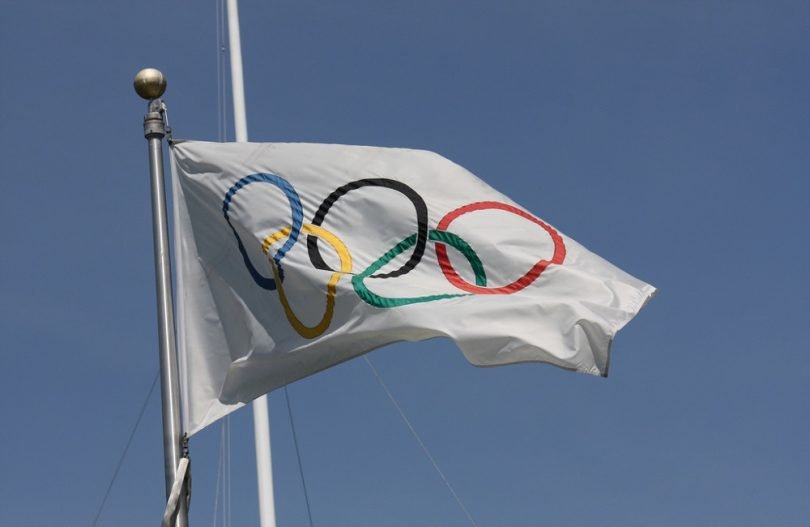When Reuters were looking for reporters to send to Rio de Janeiro to cover the 2016 Summer Olympics, a company-wide email was sent out asking reporters to apply. Along with that application, reporters were asked to write an essay on why they should go.
Liana Baker, a reporter in San Francisco who writes about business, corporate boards and mergers and acquisitions, wrote an essay with an angle of sports business. She was selected. She covered Olympic trial events not too far away in San Jose, yet felt uncertain going in to the Games themselves.
“I was a rookie reporter at Rio,” Baker said in a telephone interview. “I was nervous.”
All encompassing
Baker wrote about some of the Olympic medalling events, but also wrote about the money of the Olympics – from the sponsors to the relations between them and the International Olympic Committee. Baker was able to produce stories with a global reach, taking a step back to showcase the implications of events.
When the 2018 Winter Olympic Games began in February in South Korea, Baker was there. Preceding the Games were the geopolitical concerns between North Korea and the United States, and the doping scandal in Russia that saw much of the country’s athletes banned from the event.
Reuters going in however, was clear – they wanted it to be not just about the sport, but about the politics, business and other aspects – all encompassing.
Baker says Reuters offers the quirky stories alongside the important geopolitical stories, something that allows the organisation to be distinct.
Baker also continued her work in covering money in the Olympics.
“With Rio under my belt, I was confident at what stories could play well,” Baker said.
Her stories ranged from the medal events to the recent marketing partnership between the IOC and one of the sponsors, the Chinese technology company Alibaba. She also wrote a story on e-sports and if they should be in the Olympics.
Alibaba launches project to help make all Olympics stakeholders 'more money' https://t.co/kuNHdnsxVA @LianaBaker $BABA #PyeongChang2018 pic.twitter.com/Td1aNCMGts
— Reuters Tech News (@ReutersTech) February 10, 2018
Baker is conscious of the fact of why many journalists are here – that the pomp and pageantry of the sport can take centre stage, and respects her colleagues’ focus on the sporting events. Yet, the specialism that Baker is focusing as far as the Games are concerned, based on her reporting background in San Francisco, puts her at an advantage – adding that if the focus was just on which country got the medals, it wouldn’t be the same.
Baker says these stories help complete the overall package of covering the Olympics and life in South Korea during the Games.
“If everyone covered the same thing, your stories would be lost,” Baker said.
‘Focusing on the stories’
Baker does her work, be it at the Olympics or back in the US, as President Trump’s criticism of journalists and media organisations becomes rampant, and the words “fake news” become a part of the political lexicon. Additionally, the news of sexual harassment cases against prominent American male journalists and media figures
Baker says she tries to block out the noise, and adds that when Trump talks about a country, Reuters has reporters in those countries to add context to those stories.
“When Trump talks about a country, we have reporters there – that is valuable,” Baker said. “We’re focusing on the stories.”
However, the package of stories coming from the Games is something no journalist can tackle on their own, and Baker believes that the collaborative spirit is emphasized when it comes to Reuters’ approach to coverage, working with reporters in their bureaus internationally – be those bureaus based in New York, London, Seoul, Tokyo, Islamabad, Pakistan, Venezuela or other parts of the world.
“It would be hard to file if we were on our own,” Baker said. “The collaborative spirit is essential. We’re not competing against each other.”
With all the politics going on in Korea, you'd forget why we're all here… for the sport! First gold medal of the Games is awarded in Women's Skiathlon to Sweden.
— Liana B. Baker (@LianaBaker) February 10, 2018
When the Games in Rio ended, Baker returned to San Francisco with a more enhanced global perspective on the stories she covers, and those lessons will likely apply when the athletes and spectators exit the Olympic Village in Pyeongchang, and the journalists who cover the Games return to their respective countries.
Baker says this is especially the case as these Winter Olympics are the first of a series of three Olympic Games in Asia – the next Summer Games will be held in Tokyo, and the 2022 Winter Games will be in Beijing.
“It’s not just about a US sponsor, it’s about the local sponsors,” Baker said. “It enhances my reporting to have the ability to report on [other countries’] companies.”
Yet, Baker and Reuters’ approach to covering these stories is indicative of the need for foreign reporting, in a time where many news organisations, especially in the United States, are closing their foreign bureaus. If they don’t have a staff reporter there, they will have stringers.
For Baker and Reuters, the truth is what they offer. No matter the story, someone will be there.
“We're telling the stories no one else is,” Baker said. “If something happens, we will have someone there reporting.”









